
 The SFFaudio Podcast #414 – The Unnamable by H.P. Lovecraft; read by Mr Jim Moon. This is an unabridged reading of the short story (24 minutes) followed by a discussion of it. Participants in the discussion include Jesse Willis, Paul Weimer, and Mr Jim Moon.
The SFFaudio Podcast #414 – The Unnamable by H.P. Lovecraft; read by Mr Jim Moon. This is an unabridged reading of the short story (24 minutes) followed by a discussion of it. Participants in the discussion include Jesse Willis, Paul Weimer, and Mr Jim Moon.
Talked about on today’s show:
Weird Tales, a joke, W. H. Pugmire, the Lovecraft learning curve, a very short story indeed, the meta-story, beyond our ken, a literary argument, someone from the Great Race Of Yith came back in time, defending his own fiction, playtesting, every paragraph has vocabulary expanding words, resonances between stories, Philip K. Dick, the night, architecture, the numinous, a fake and also legit defense against the arguments marshaled against him, Neil Degrasse Tyson, dark matter, dark energy, a scare story, the orchestration of the vocabulary, the bat, Carter and Manton, the beginning of it, The Unnamable (1988), mercifully short,
It is all in that ancestral diary I found; all the hushed innuendoes and furtive tales of things with a blemished eye seen at windows in the night or in deserted meadows near the woods. Something had caught my ancestor on a dark valley road, leaving him with marks of horns on his chest and of ape-like claws on his back; and when they looked for prints in the trampled dust they found the mixed marks of split hooves and vaguely anthropoid paws. Once a post-rider said he saw an old man chasing and calling to a frightful loping, nameless thing on Meadow Hill in the thinly moonlit hours before dawn, and many believed him.
New England puritanical horror, who it is or what it is, Cotton Mather, The Tree by H.P. Lovecraft, a hidden murder, Pan, one aspect of the unnameable creature, a faun, a creature of indiscriminate sexuality, pan -> panic, the panisci, the panic of the herd, what are they doing in the hospital, attacked by a bull, a rape story, Archive.org, fs for Ss, the Attic Window, Whispers, The Gable Window by August Derleth, a cruel joke, precipitating the event, Manton’s reaction, ha ha ha I told you so, I whispered an awestruck question, was it like that?, like my memory?, in an earlier age, What Was It? by Fitz-James O’Brien, an unseen demonic force, The Shunned House by H.P. Lovecraft, a two-fisted investigation, flamethrowers, bones and a skull with horns, noisome frigid air, a piercing shriek, a rifted tomb of man and monster, Carter’s sucker punch, an inverse Scooby Doo ending, a malice, a more charitable reading, spinning up a story with a similar effect, the short film, The Shadow Of The Unnamable (2011), the hint of a German accent, the Germans love Lovecraft, the aspect of the animals, the snails, moths, the bat, experiences with bats, tangled in women’s hair, brushed by a bat at night, what is going on in the original Cotton Mather story?, the goose barnacle, bothering farmyard animals, Ring Of Bright Water, a pet otter, a diving terrier, in the film the unnamable has a name: Elida, the 1988 film, the empty Miskatonic University campus, the under-dressed sets, the blank slate (or slab), tabula rasa, nicely drawn out, The Unnamable II: The Statement Of Randolph Carter, a being from “we best not speculate where”, co-terminus beings, an illegible slab, colossal roots sucking, illegible vs. blank, an olive tree, The House by H.P. Lovecraft, magnifying an aspect, a real house, Fungi From Yuggoth, The Howler by H.P. Lovecraft
They told me not to take the Briggs’ Hill path
That used to be the highroad through to Zoar,
For Goody Watkins, hanged in seventeen-four,
Had left a certain monstrous aftermath.
Yet when I disobeyed, and had in view
The vine-hung cottage by the great rock slope,
I could not think of elms or hempen rope,
But wondered why the house still seemed so new.Stopping a while to watch the fading day,
I heard faint howls, as from a room upstairs,
When through the ivied panes one sunset ray
Struck in, and caught the howler unawares.
I glimpsed—and ran in frenzy from the place,
And from a four-pawed thing with human face.
Lovecraft books become the books, The Weird Writings Of H.P. Lovecraft, spellcasting books,
It had been an eldritch thing—no wonder sensitive students shudder at the Puritan age in Massachusetts. So little is known of what went on beneath the surface—so little, yet such a ghastly festering as it bubbles up putrescently in occasional ghoulish glimpses. The witchcraft terror is a horrible ray of light on what was stewing in men’s crushed brains, but even that is a trifle. There was no beauty; no freedom—we can see that from the architectural and household remains, and the poisonous sermons of the cramped divines. And inside that rusted iron strait-jacket lurked gibbering hideousness, perversion, and diabolism. Here, truly, was the apotheosis of the unnamable.
combining points of view, going back to that 17th century New England horror, The Witch (2016),
Others knew, but did not dare to tell—there is no public hint of why they whispered about the lock on the door to the attic stairs in the house of a childless, broken, embittered old man who had put up a blank slate slab by an avoided grave, although one may trace enough evasive legends to curdle the thinnest blood.
inviting speculation, the image of a person retained in glass, Bob Shaw’s stories about Slow Glass, The Light Of Other Days by Bob Shaw, images imprinted on glass, the motif of photographic lightning, the emotions in physics, The Martians by Ray Bradbury, Oh!, when Paul became an SF fan, legend, the murderer’s eye,
Whether or not such apparitions had ever gored or smothered people to death, as told in uncorroborated traditions, they had produced a strong and consistent impression; and were yet darkly feared by very aged natives, though largely forgotten by the last two generations—perhaps dying for lack of being thought about. Moreover, so far as aesthetic theory was involved, if the psychic emanations of human creatures be grotesque distortions, what coherent representation could express or portray so gibbous and infamous a nebulosity as the spectre of a malign, chaotic perversion, itself a morbid blasphemy against Nature? Moulded by the dead brain of a hybrid nightmare, would not such a vaporous terror constitute in all loathsome truth the exquisitely, the shriekingly unnamable?
The hour must now have grown very late. A singularly noiseless bat brushed by me, and I believe it touched Manton also, for although I could not see him I felt him raise his arm. Presently he spoke.
“But is that house with the attic window still standing and deserted?”
“Yes,” I answered. “I have seen it.”
the skull, the telling of the tale is the summoning of the creature, if only…, Arkham Asylum, rough sex or something, thinking about Elida, why is she so white?, justification, home invaders, The Texas Chainsaw Massacre (1974), Leatherface takes a moment, backstory, bringing dignity to the situation, get off my tomb!, 6 pages of high level vocab words, the meta-aspect, lazy critical opinions, a linguistic trap, Lovecraft’s riposte to his critics, rumor, imagination, illusion, what effect does it have upon us?, the real horror, what does that do to a man?, Boston, the delicate overtones of life, what are they?, silly milksops, having it both ways, there’s no California gothic, what Algernon Blackwood can do with the wilderness, the power of nature vs. the power of an old building or a graveyard, The Wendigo, a reverence for that witch is unnamed, afflicted by a being, how could Lovecraft exist in a place like California?, had Lovecraft been to Florida by 1925, C.M. Eddy, The Loved Dead, withdrawn from Indiana, Farnsworth Wright, Kissed (1996), a very tasteful and very repellent film, “love knows no bounds”, a take that, Dagon by H.P. Lovecraft, In Defense Of Dagon, an old argument, every day things transcribed, a proper film about Albanian engineers, give us some awards, Tropic Thunder (2008), never go full retard, skewering truth, gameas that people play, pretending to have seen movies or read books, the guilty pleasure, don’t listen to the milksops (whatever they are), Philip K. Dick wanted to write realistic fiction, Lovecraft never dabbled in trying to be respectable, intertextual obssession, a library and a graveyard and a grove, F. Scott Fitzgerald, all the problems that the people at the Great Gatsby party have, facing the nature of the universe, keep the fright away, the beauty and terror of the universe, daytime is for writing letters, petting cats, and eating ice-cream, dreams, attacking F. Scott Fitzgerald, great writing, rushingly boundlessly toward, as an even more concrete opposite: Upton Sinclair and Theodore Dreiser, grinding detail, social documents but not fun to read.
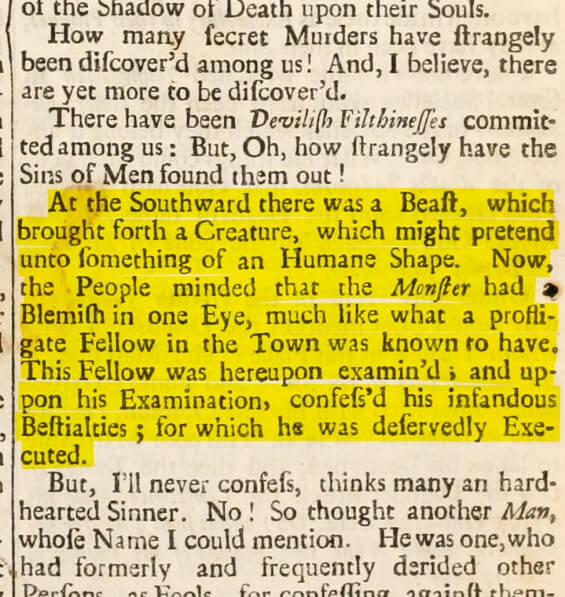
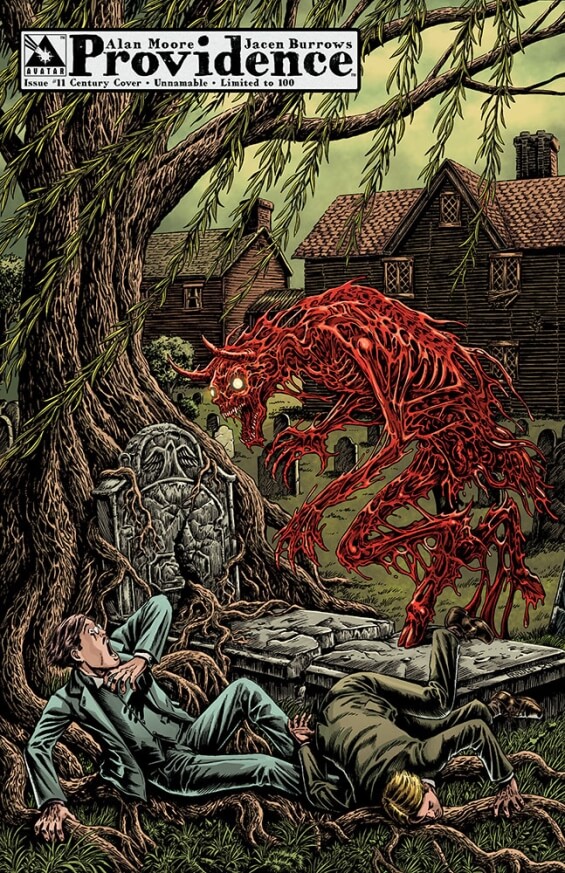
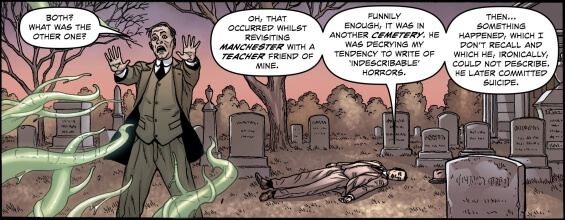
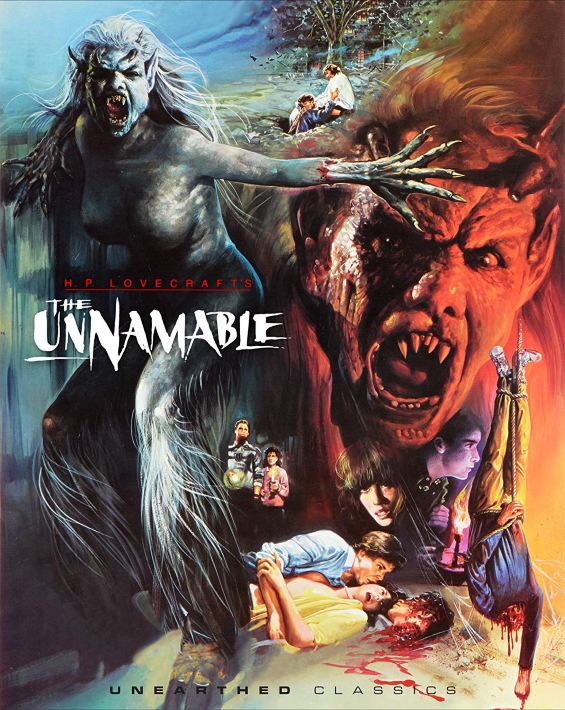
Posted by Jesse Willis




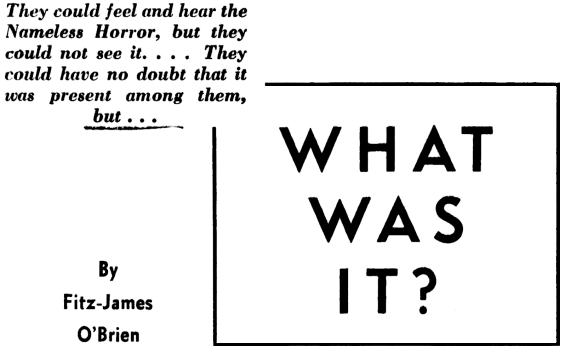

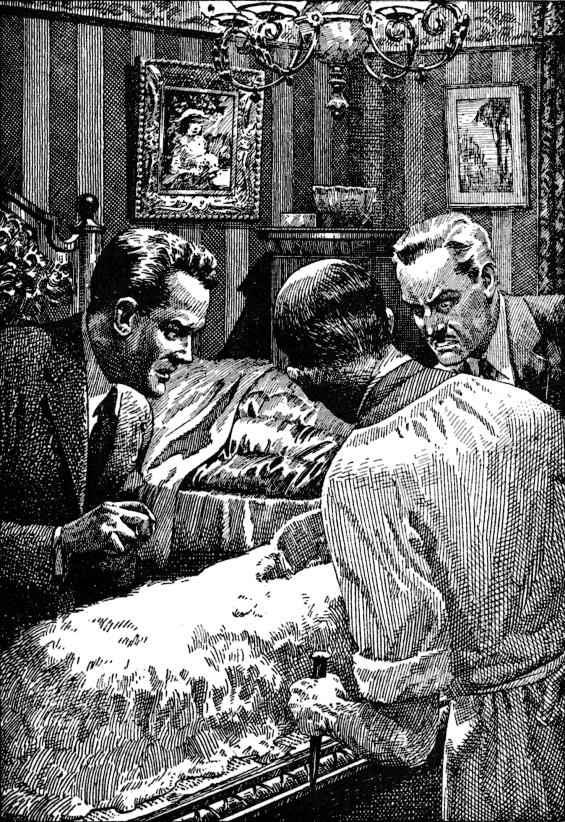
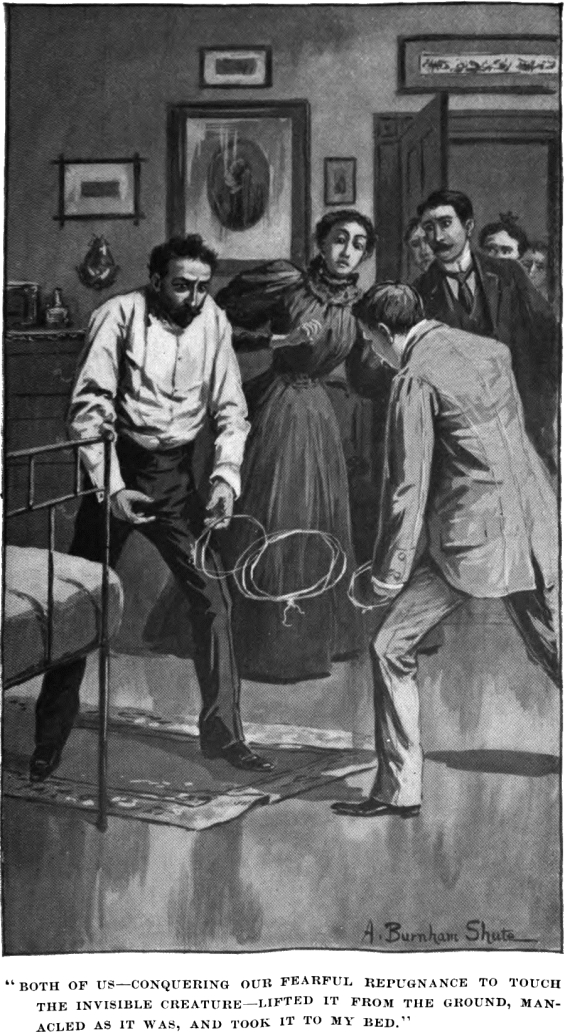
 What Was It?
What Was It?